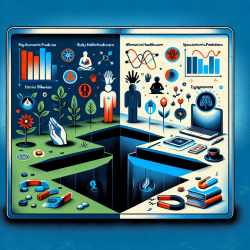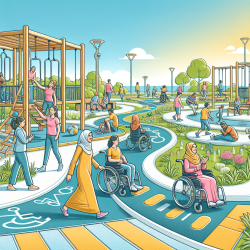Introduction
Adverse Childhood Experiences (ACEs) are a critical area of study in understanding the long-term impacts of childhood trauma. The recent research article, "The Consequences of Child Abuse," provides a comprehensive overview of the implications of ACEs, emphasizing the necessity for practitioners to incorporate this knowledge into their therapeutic approaches. This blog will explore key findings from the research and suggest practical applications for speech-language pathologists and other child development professionals.
Key Findings from the Research
The study outlines the ACE pyramid, which illustrates the progression of consequences stemming from childhood trauma. This framework is crucial for practitioners as it highlights the potential pathways from early adverse experiences to severe health outcomes, including early death. The pyramid consists of eight stages, starting with generational trauma and culminating in early death. Understanding these stages helps practitioners identify where interventions can be most effective.
Key consequences of ACEs include:
- Neurodevelopmental disruptions
- Impairment of social, emotional, and cognitive functions
- Increased likelihood of engaging in risky health behaviors
- Higher risk of psychiatric disorders
- Potential for intergenerational trauma transmission
Implications for Practitioners
For speech-language pathologists and other child development professionals, understanding the impact of ACEs is crucial for developing effective intervention strategies. Here are some ways practitioners can apply these insights:
- Early Identification and Intervention: By recognizing signs of ACEs early, practitioners can implement targeted interventions to mitigate long-term effects.
- Holistic Approach: Incorporate a comprehensive view of the child's environment, including family and community contexts, to address the root causes of trauma.
- Building Resilience: Focus on enhancing the child's resilience through supportive relationships and coping strategies, which can buffer against the negative impacts of ACEs.
- Collaboration with Other Professionals: Work closely with psychologists, social workers, and educators to create a supportive network for the child.
Encouraging Further Research
While the current research provides valuable insights, there is a need for ongoing studies to explore the nuances of ACEs and their impact on child development. Practitioners are encouraged to stay informed about new findings and incorporate evidence-based practices into their work.
To read the original research paper, please follow this link: The Consequences of Child Abuse.










